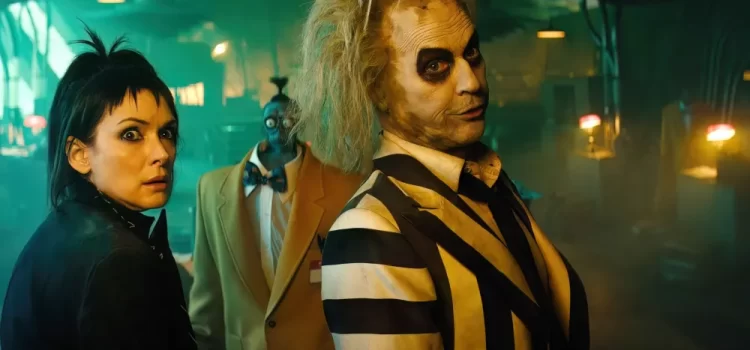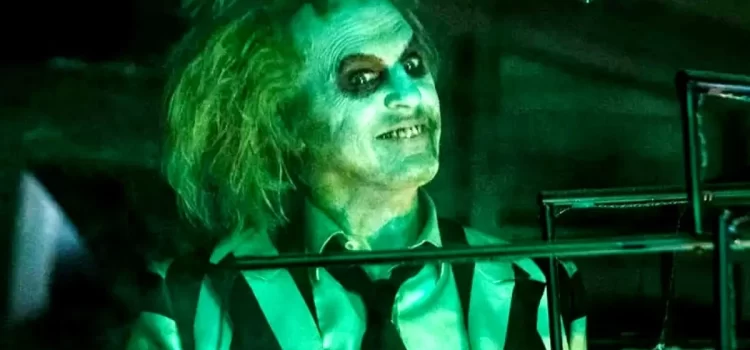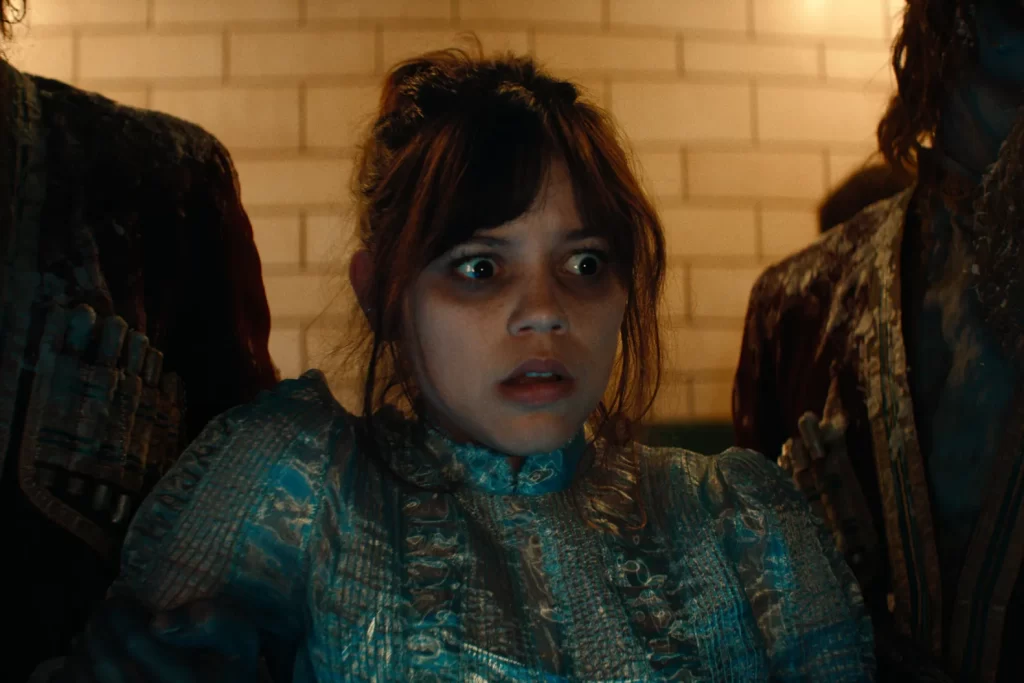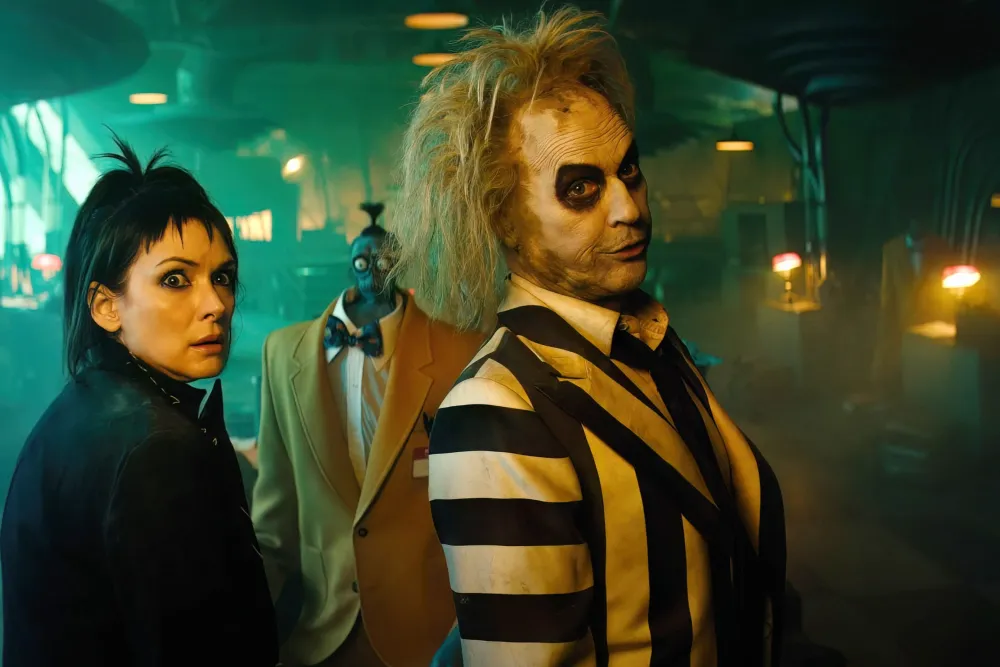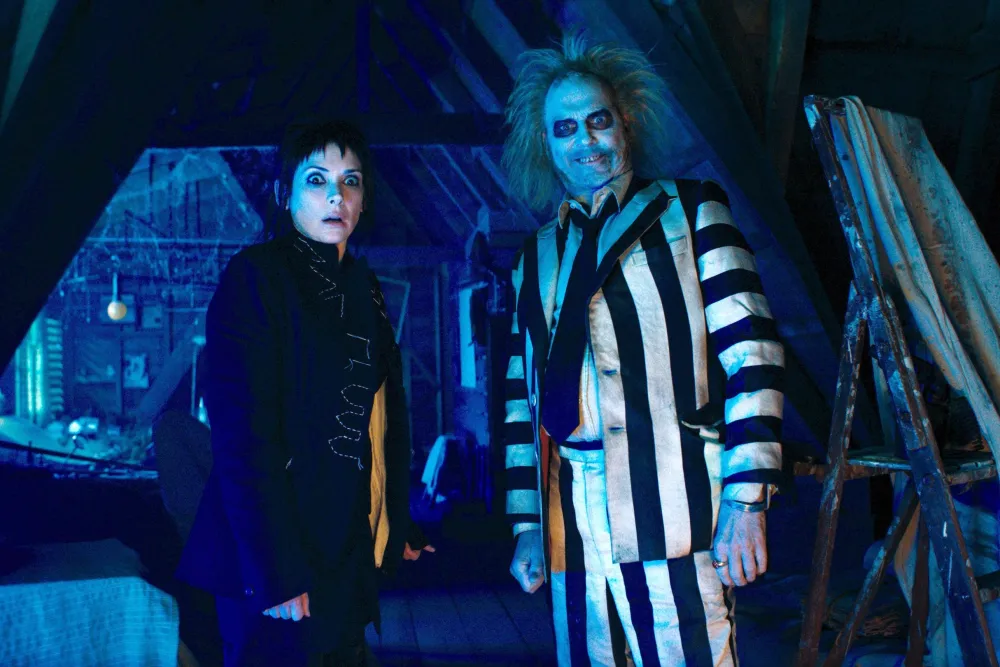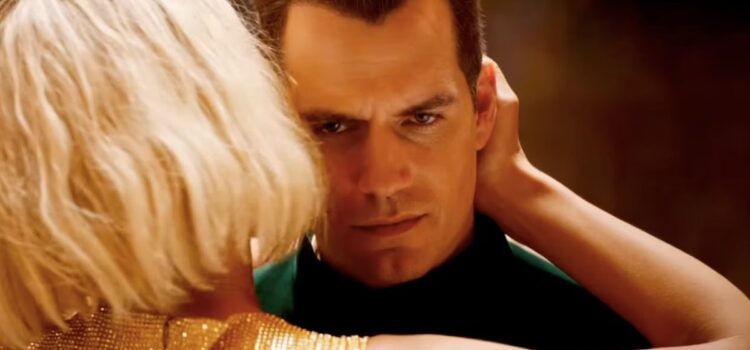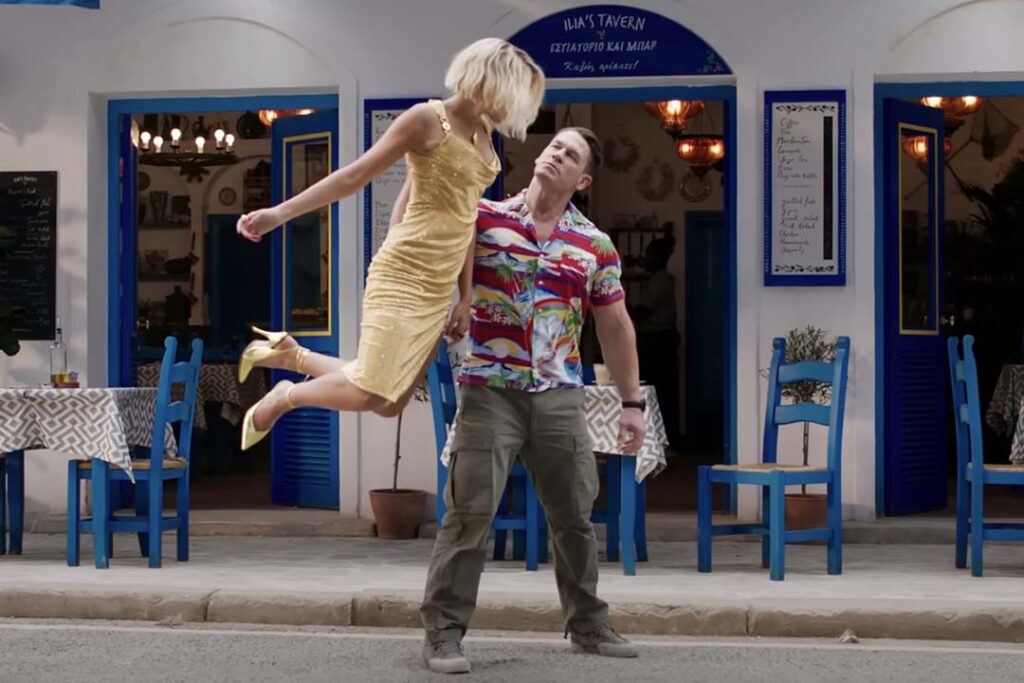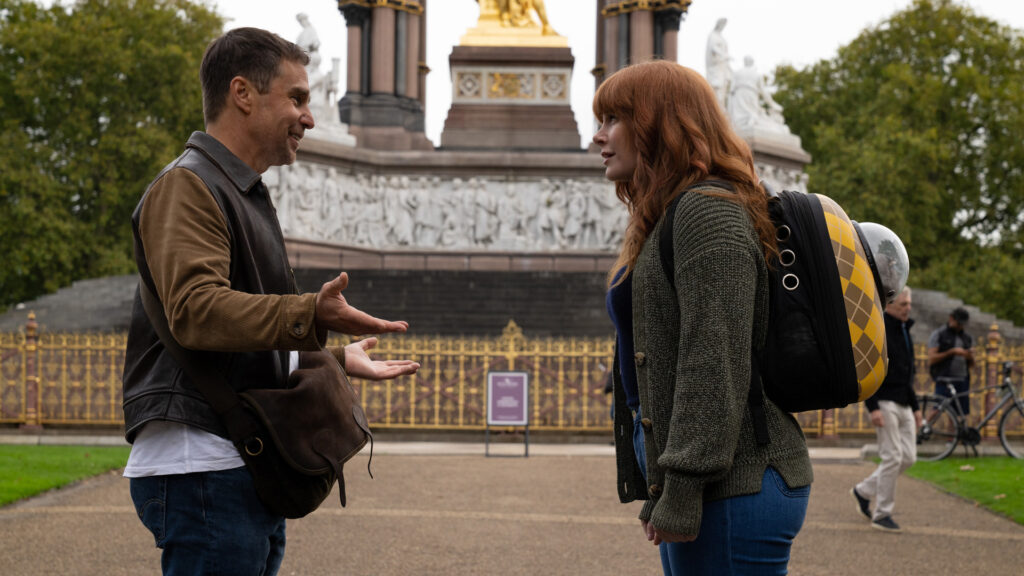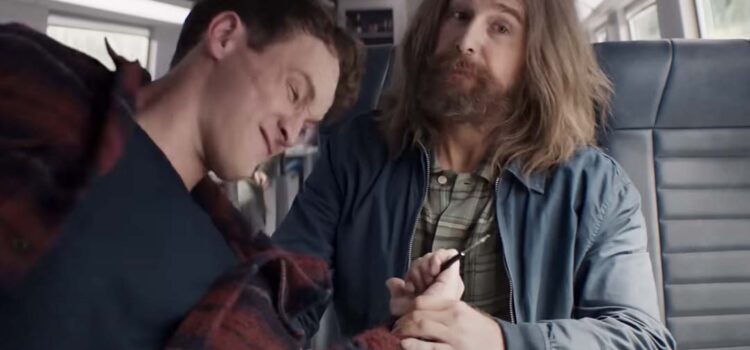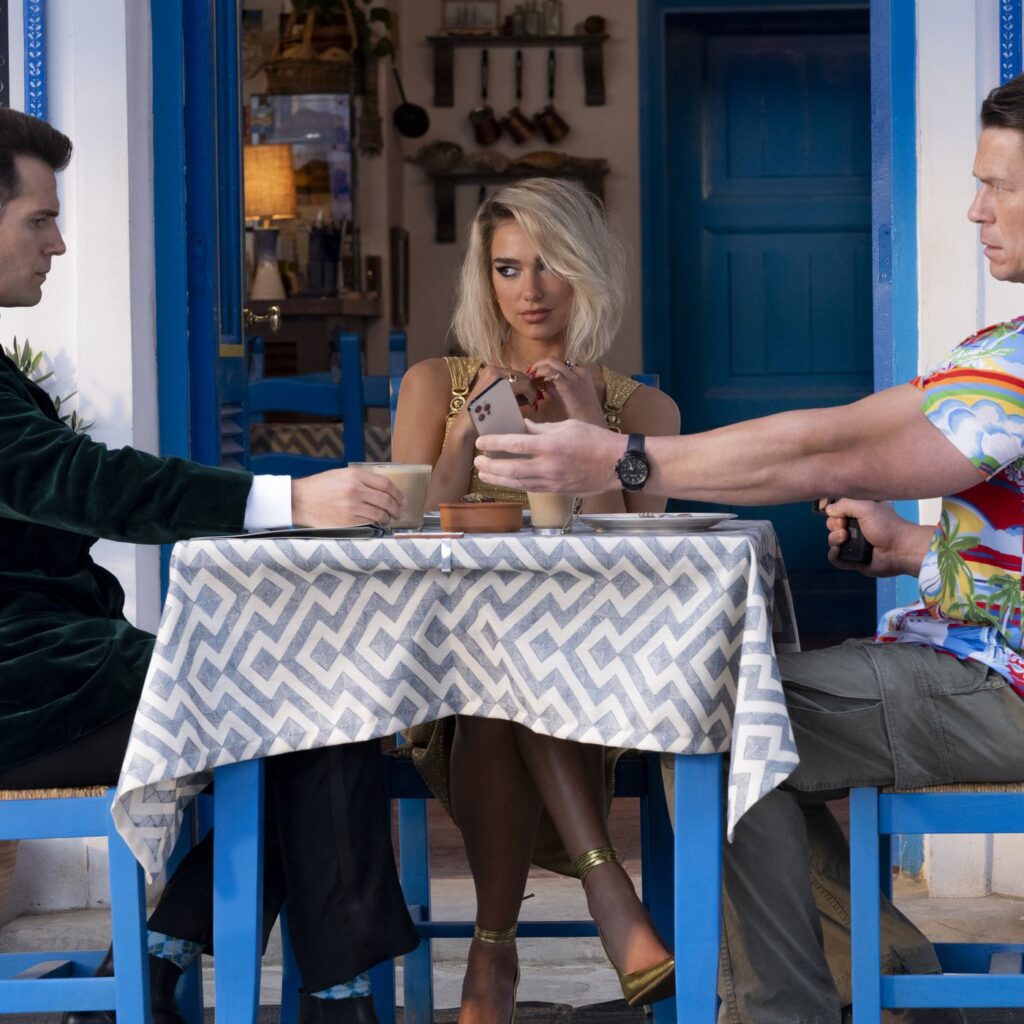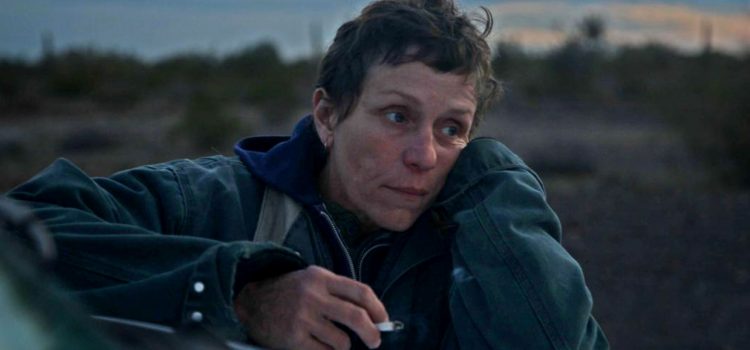By Alex McPherson
Messy and overstuffed, but bursting with personality, director Tim Burton’s “Beetlejuice Beetlejuice” is a worthy follow-up to the 1988 original that provides another excellent showcase for Michael Keaton’s comedic talents.
“Beetlejuice Beetlejuice” takes place 36 years after the events of the first film. It continues the story of Lydia Deetz (Winona Ryder), last seen dancing to Harry Belafonte with a ghostly football team. She has become a successful television host and essentially cashed in on her supernatural abilities to see ghosts, making a living off others’ trauma.
But she’s haunted by visions of “Beetle Breakfast” himself (Keaton), popping pills to keep them at bay. She’s accompanied by her TV show producer and romantic partner Rory (Justin Theroux), who barely conceals his toxicity behind platitudes and emotional manipulation, valuing money and external validation above all else.
Lydia is abruptly summoned to New York City by her stepmother, Delia (Catherine O’Hara), a vain yet lovable diva having now become a performance artist in the Big Apple. She informs Lydia that her father, Charles (Jeffrey Jones), has unceremoniously died en route to a bird-watching trip.
Lydia, Delia, and Rory decide to have Charles buried at the Maitland family house in Winter River, Connecticut (the Maitlands are abruptly written out of this story), picking up Lydia’s estranged daughter Astrid (Jenna Ortega) from boarding school along the way. Astrid is highly resentful of her mother, who cannot see the ghost of her deceased father, and immerses herself in climate activism to rebel against her family’s opportunistic ways.
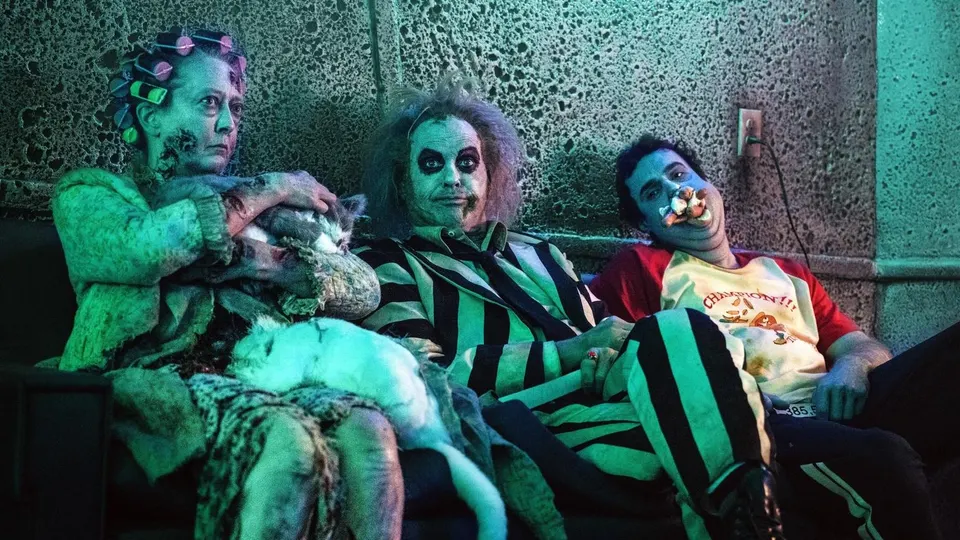
In the Afterlife, the titular Beetlejuice, as unhinged as ever, has opened a call center for his “bio-exorcism” gig. He’s staffed his office with ghouls with shrunken heads and uses one poor lad, Bob, as his personal assistant. Beetlejuice seems pretty content with all that power, but his past has other plans.
An unlucky janitor (played by Danny DeVito) ends up accidentally unleashing Beetlejuice’s ex lover, Delores (Monica Belluci), upon the world — a literal soul-sucking badass who physically staples herself back together — and she’s out for revenge. Beetlejuice needs to find a way out of the Afterlife.
Young love, a marriage proposal, betrayal, rebellion, alternative waiting room visits, and wacky, charmingly grotesque antics ensue as Beetlejuice enters the Deetz’s lives once again.
Let’s just say, there is a lot going on in “Beetlejuice Beetlejuice,” too much for any single plot strand to get the attention it really deserves. But Burton’s sequel is more than the sum of its parts. Without sanding down the caustic wit of the original or sacrificing its visual pizazz, “Beetlejuice Beetlejuice” is an immensely fun watch, albeit an experience that works best if viewed purely as an excuse to get the gang back together to riff on old times.
“Beetlejuice Beetlejuice” largely captures the feel of Burton’s classic, from the gothic-inspired, lived-in set design (given a slightly too crisp digital sheen this time around), to Danny Elfman’s score, to its blunt satire of bureaucracy and greed, to the zany performances and a proud refusal to adapt to “modern” sensibilities. It’s just a fun time at the movies–-scattershot in its storytelling but knowingly so, retaining a distinctive style that only Burton’s mind can conjure.
The entire ensemble of returning players and new faces seems to be having a ball on screen. Keaton is the obvious standout, slipping back into the iconic role with ease. Beetlejuice’s signature gross-out, form-breaking, shape-shifting antics are rendered as vividly as ever without relying on CGI.
He’s alternately funny, likable, and squirm-inducing as the flamboyant trickster with surprises up his sleeve and havoc on his mind — manipulating anyone and everyone to his advantage. Keaton’s commitment to the bit makes one wish that he had even more screen time; however; the film has too much ground to cover to make him center-stage consistently.
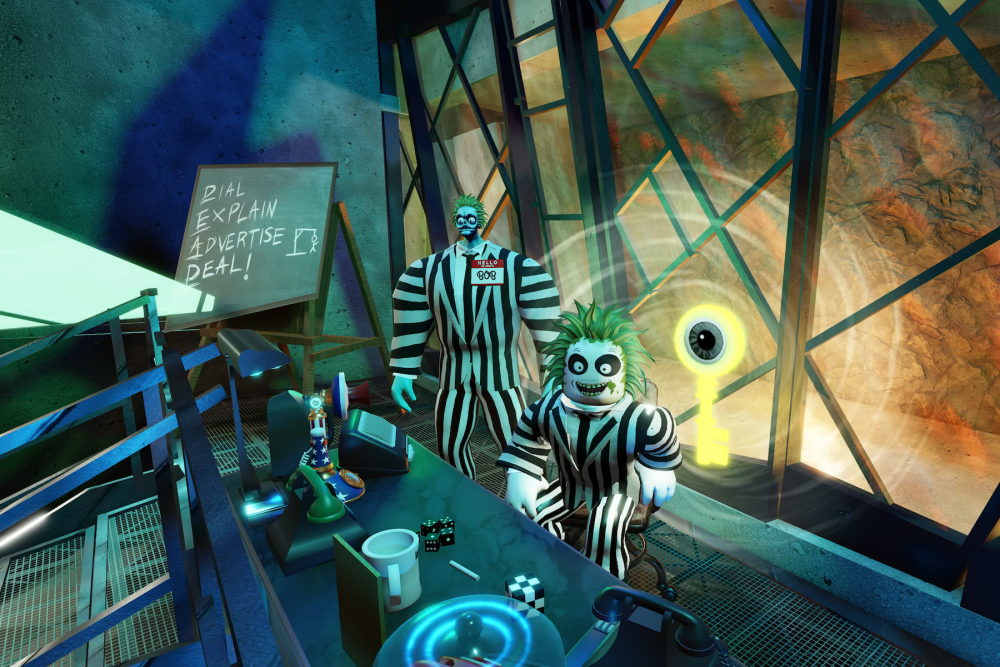
Keaton steals his scenes all the same, delivering some genuinely shocking moments with sincerity, and taking part in some memorable set-pieces in the finale that really go for it. On his performance alone, the film soars.
Ryder excels yet again as Lydia, uptight and deflated but willing to fight for her family and what’s right. O’Hara, as before, is hilarious, particularly regarding the creation of artwork where she “deals with grief” in outlandish fashion. Ortega fits the role of the moody Astrid well, but stays within the bounds of her previous efforts in shows like “Wednesday.”
Arthur Conti as Jeremy, a neighborhood boy who sparks a romance with Astrid, is charming though mysterious. Theroux is enjoyably annoying, while Bellucci is threatening but disappointingly underused. (Delores is one of the most egregious sacrifices to the film’s narrative restlessness.)
Willem Dafoe, as movie-star-turned-Afterlife-detective Wolf Jackson tracking Delores’s reign of terror, is amusing, with some excellent makeup, but the screenplay ultimately doesn’t do much with him.
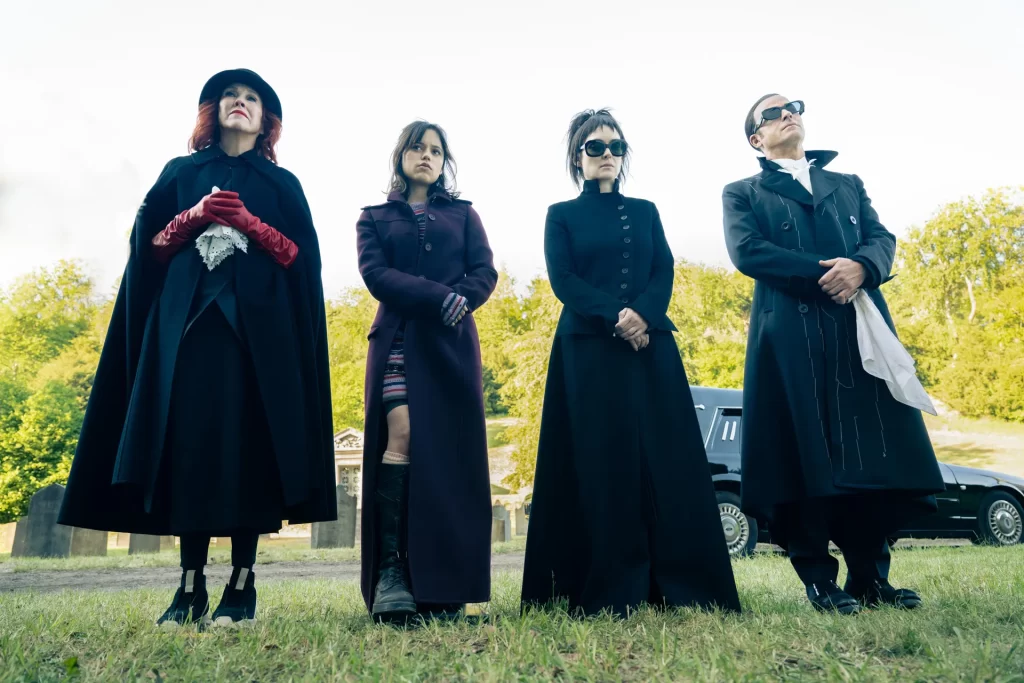
Indeed, much of “Beetlejuice Beetlejuice” doesn’t dig beneath the surface. And, to be fair, it didn’t need to. It’s as if Burton wants us to relinquish deeper thought and go along for the ride — playing into nostalgia while introducing new characters and environments into the “Beetlejuice” universe.
The closer one looks at any particular thread of “Beetlejuice Beetlejuice,” the less it holds up, and the few instances where Burton aims for poignancy don’t quite land effectively, as do early set-up scenes in the real world that take a while to kick into gear. Fortunately, much of “Beetlejuice Beetlejuice” operates at too fast a clip to dwell on these shortcomings.
Many of the characters struggle with being authentic, both to themselves and others, and this truthfulness (or lack thereof) often determines their fates. “Beetlejuice Beetlejuice,” on the other hand, knows exactly what it is and largely embraces its instincts, remaining a wholly satisfying way to kick off the spooky season. It’s the rare legacy sequel that really delivers.
“Beetlejuice Beetlejuice” is a 2024 horror-comedy directed by Tim Burton and starring Michael Keaton, Winona Ryder, Jenna Ortega, Catherine O’Hara, Monica Bellucci, Justin Theroux and Willem Dafoe. It is rated PG-13 for violent content, macabre and bloody images, strong language, some suggestive material and brief drug use and the run time is 1 hour, 45 minutes. It started in theatres Sept. 6. Alex’s Grade: B+.
Alex McPherson is an unabashed pop culture nerd and a member of the St. Louis Film Critics Association.

